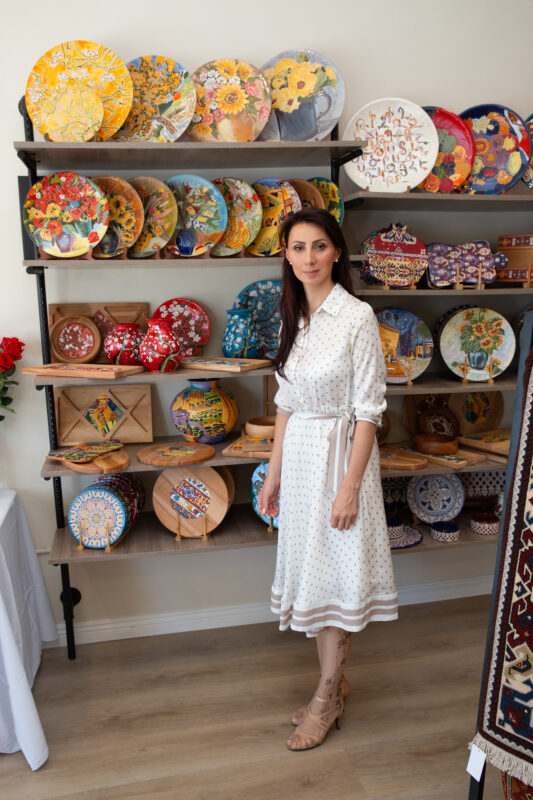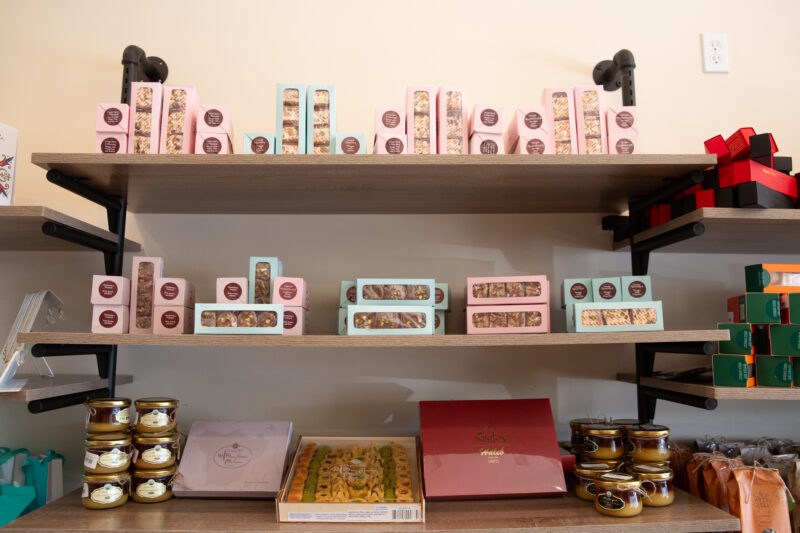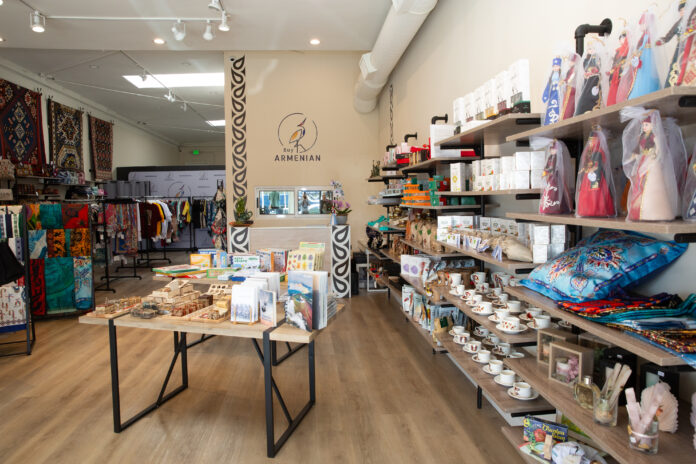GLENDALE, Calif. — At the corner of San Fernando Road and Brand Boulevard in Glendale, neighboring the historical Train Station, the crowd was patiently waiting for the red ribbon to be cut and the bread to be broken for the grand opening of the Buy Armenian storefront on June 22. But this wasn’t just another store opening: it was an idea, a project and a goal that united Armenians in Armenia and diaspora three years ago during the war in Artsakh, one of the most horrendous times for the entire nation. Lilit Odabashian along with her husband Nishan came up with a plan of buying only products and goods made in Armenia or by Armenians during that time and shared it on her social media. Soon, thousands of people in diaspora started to follow her lead, supporting local businesses who imported only Armenian products and therefore supporting the producers in Armenia when all the sales were almost impossible in the midst of the pandemic and war. Not much later, Lilit and Nishan decided to create an online platform where all producers, craftsmen and businesses could sell their creations to the customers in the US, and later, to the world. Three years later, after many festivals and pop-up events where the founders of Buy Armenian saw more clearly the demand of their services at the permanent address, the decision to open a store became inevitable.

“Armenian products are in much need of marketing. While not having a storefront and operating from our home and the warehouse where everything was in the boxes, I didn’t have the flexibility to show them appropriately to the buyers. Now, in this beautiful store the main purpose is to display everything and market with full force,” says Lilit.
Out of a thousand vendors from the website, 25 are introduced in this 1,800-square-foot showroom. Fifteen more are waiting to take their place on the shelves in the upcoming months.

Mane Tiles, which has produced handcrafted ceramic tiles since 2001, has more than two hundred decorative plates, cheese boards and serving dishes at the store. With the limited market in Armenia, the company has always seen the need to explore other markets, explains Angela Manukyan, the managing director of Mane Tiles. “With the help of Buy Armenian we were able to create new contacts and export small but significant quantities of our products to the US. We are estimating fifteen to twenty percent of overall sales to be in this market especially after the opening of the store, since it’s even more effective to physically see the products than buy them online.”

One of the first producers to join the movement was Artsakh Carpet. After the second war in Artsakh in 2020, the company had to relocate its operations entirely to Stepanakert and rely on exports in order to provide stable employment for its employees. Buy Armenian became that bridge to create a reliable customer base in the diaspora.
“As a result of the war, all the small producers were suffering, including Artsakh Carpet. Buy Armenian was that helping hand that reached out to each of us and became a solution for overcoming that difficult period of our life and continuing our work,” says Sevak Khachatryan, founder and managing director of Artsakh Carpet.









